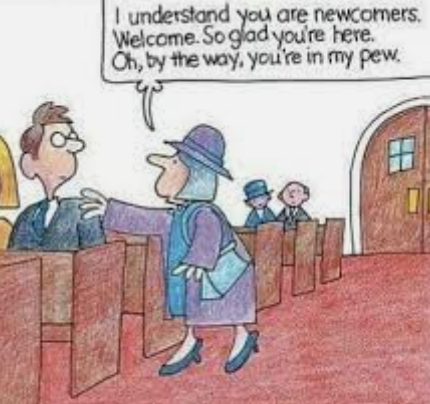
One Sabbath… what does that really mean to us today?

Those days when society strictly adhered to the code of what we must wear, what we can do on a Sunday have gone, haven’t they (other than on the Western Isles)? It was, then, a seemingly unwritten rule which was to be followed. Not because we knew exactly why but it was “the done thing”. We might have known some members of congregations who would come in their “Sunday best” albeit it was now threadbare or know where to sit – and oh my goodness what might happen if someone sat where we normally sit!!! We daren’t disturb you.
It feels a bit like this is rule-based rather than coming from our hearts.
Healed after 18 years

Jesus is visiting a synagogue over a number of Sabbaths – the word is plural. He calls across a woman who has been bent double for 18 years. I wonder if anyone else had noticed her as she might have been someone who came to the synagogue area every Sabbath. “It’s Muriel from around the corner” – although those who are healed in Luke’s Gospel are never named.
We read that Jesus heals her and she is ecstatic. There doesn’t seem to be any prior warning that this would occur. There’s no offering of healing, nor did she initiate the dialogue.
Do you have any concerns here? Was it a case of radical transformative giving?
Is 18 significant?

The 18 could also be significant. It is not mentioned anywhere else bar for Luke 13:4, which appears totally unrelated. But some have noted that it is the sum of the first two letters of Jesus. So what, you say?
Ἰησοῦς
Nomina Sacra
In the Greek text the number isn’t written as eighteen but eight and ten. The iota eta is given a line over the top to indicate a sacred name : Jesus is within all. But not the cause of this illness.
Some have suggested that the woman had the illness ankylosing spondylitis, causing a curvature of the spine. She is released from this binding disease by the touch of Jesus. Jesus disturbs her life to allow it to flourish again.
The woman didn’t have the illness due to sin. Noticed that Jesus doesn’t seek forgiveness or ask her to repent – change her ways. It is the liberation from that illness. Healing might be seen purely on terms of being free from the medical trauma or free from the burden of society. She may now be seen by the community which possibly ignored her for nigh on 2 decades.
“I’m indignant – are you?”
Oh the leader of the Synagogue is indignant. The rules clearly state that we only work for 6 days of the week but on the Sabbath we rest. Where is Jesus getting his interpretation of the rules? It says in Deut 5:14-15 that the Sabbath rules are for liberation and rest not ignoring the plight of others. My thoughts about the Sabbath today are here.
The leader of the synagogue then blames the woman for coming to the synagogue to be healed on a Sabbath. How dare she? How dare she disturb you…
Jesus rebukes them as ‘false actors’, calling them hypocrites. Interesting. He is not saying that the leader of the Synagogue is a hypocrite but all of them! You might wonder whether the congregation agreed with the leader as they spoke of the rules.
Was the leader trying to gain the upper hand by looking to gain the approval of the congregation against Jesus?
Triangulation again?
Behaviour
So for 6 days of the week we can work. So is our behaviour on the sabbath so markedly different compared to the other days of the week? What might this say to others when commenting about the life of Christians? Are our hearts not so readily warmed during the rest of the week that compassion and love for all others is not so merited other than on the Sabbath?
It was Walter Brugguemann who suggested that the Sabbath might be something which we can do everyday. There were sabbath moments throughout the week. We might call these times akin to “thin places” where the spiritual world is so close to our world. We can capture those moments, of peace, of being so close to our God – where we can, it would feel, that we can look God in the face. Can the practices of our life be disturbed so we may find God?
Thoughts?
Would we ask a doctor in the congregation to help someone who collapsed at the Sunday service or deny that opportunity? Would we stop the service if something tragic occurred outside the building? We are called to show that compassion and love 24/7 not 1 hour in 192.
I found the dialogue interesting